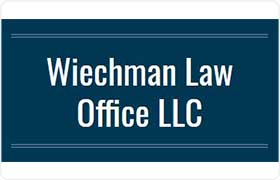Topeka Bankruptcy & Debt Lawyer, Kansas
Sponsored Law Firm
-
 x
x

Click For More Info:
-
Wiechman Law Office LLC
1101 Sw 10th Ave. Topeka, KS 66604» view mapBankruptcy & Debt Law A Better Way Forward
Our mission is to guide our clients to a better way of life. We are here to listen. We are here to help. We’ll find a solution that fits you and your situation.
800-969-4051
Gary E. Hinck
✓ VERIFIEDBankruptcy, Reorganization, Workout, Credit & Debt, Consumer Bankruptcy
We are a debt relief agency, we help people file for Bankruptcy under the Bankruptcy code.
Gary E. Hinck is an experienced Bankruptcy Attorney who has helped thousands of clients through the Bankruptcy process. Gary and his staff understand ... (more)
Adam Michael Mack
Divorce & Family Law, Bankruptcy, Bankruptcy & Debt, Malpractice
Status: In Good Standing
Alan F. Alderson
Real Estate, Employment, Divorce & Family Law, Bankruptcy & Debt
Status: In Good Standing
B. Keith Kocher
Employment, Divorce & Family Law, Business, Bankruptcy & Debt
Status: In Good Standing Licensed: 42 Years
Blake K. Porter
Federal Appellate Practice, Transactions, Administrative Law, Bankruptcy
Status: In Good Standing
 Kerry Gasper Topeka, KS
Kerry Gasper Topeka, KS

